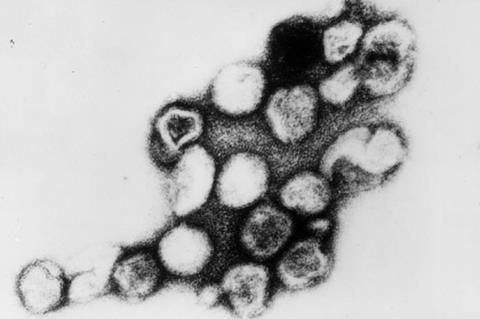A major challenge in the efforts to eradicate rubella and measles has been the absence of a unified global commitment to do so, despite the availability of effective vaccines.

In a Policy Forum in Science, Matthew Ferrari and William Moss discuss the 2024 World Health Organization’s (WHO) recommendation for universal introduction of rubella-containing vaccines (RCVs) into childhood vaccination programs in all countries – particularly in the remaining 19 countries that have yet to do so.
READ MORE: False belief in MMR vaccine-autism link endures as measles threat persists
READ MORE: Study charts spectrum of febrile rash illness in China from 2009 to 2021
According to the authors, the decision marks a critical step toward eliminating congenital rubella syndrome (CRS) and, ultimately, rubella itself. And, since RCV is delivered in combination with the measles vaccine, the effort will significantly boost global immunity against both diseases, bringing the world closer to eradicating both diseases.
Grave risks
Rubella, typically mild, poses grave risks when contracted during pregnancy and often leads to CRS, causing birth defects and infant mortality. While many nations have successfully introduced the RCVs using domestic resources, poorer nations have lacked the financial capacity to do so and have relied on external funding.
Ferrari and Moss note that the WHO’s support in introducing RCVs globally removes a major hurdle for these last 19 countries, many of which are in Africa and the Global South.
However, because widespread vaccination and eradication benefits the global community, the authors argue that the international community and non-governmental organizations need to work together to advocate for RCV introduction. They should collaborate to provide incentives for high-quality vaccination campaigns in critical regions.
Ferrari and Moss also stress that the potential resurgence of rubella and measles transmission in the Western Hemisphere poses a significant threat. According to the authors, declining support for vaccination, the United States’ withdrawal from WHO, and the recent threat to eliminate international health funding “[loom] as a dark cloud on the horizon,” and could jeopardize what could be a monumental global public health achievement.







No comments yet